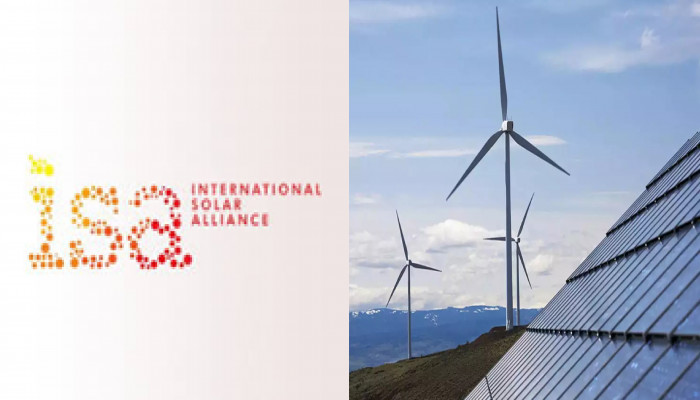ISA seeks Indian private sector support to drive Africa's green energy growth
- In Reports
- 01:10 PM, Apr 09, 2025
- Myind Staff
As solar energy projects in Africa gain speed under the International Solar Alliance (ISA), a senior ISA official has urged Indian businesses to get more involved and build on the positive reputation already created by the Indian government across the continent.
The ISA, which was co-founded by India, has made good progress in expanding access to clean energy in Africa. Currently, 30 solar projects are either in progress or being planned, said Barakat Ahmed, Regional Programs Head for Africa at the ISA, while speaking to ANI on Tuesday. These projects cover different areas, like installing solar systems in schools, health centres, government offices, cold storage facilities, and solar-powered water pumps. India has good experience in bringing solar power to villages and, along with its strong historical and diplomatic relationship with Africa, this gives Indian businesses a great chance to lead the way in Africa’s move towards solar energy.
African nations, according to Ahmed, view India as a reliable partner and are eager to use Indian knowledge and solutions. "India's footprint in Africa is already strong, and if the private sector joins hands with the public effort, it could transform the continent's energy future. This is a win-win for both sides," Barakat Ahmed said. He said that Indian companies should take more initiative.
"We've seen a lot of interest from Indian private players recently--four companies approached us just last month. However, many are still hesitant due to a lack of on-ground clarity and perceived risks. That's where the ISA comes in--to de-risk the investment environment and facilitate partnerships," the official said.
Indian businesses have a great opportunity ahead, as the International Solar Alliance (ISA) is in talks with 7 to 10 African countries to set up large-scale solar projects. These projects could range in investment from USD 50 million to USD 400 million. Some of the countries involved in these discussions include Ethiopia, Guinea, Mauritius, Zambia, Niger and Mali.
"Africa remains the most underserved region in terms of energy access--with over 600 million people still lacking electricity. The nature of the continent's geography makes it impractical to rely solely on grid-based solutions, making solar energy the most viable and scalable option," Ahmed told ANI, mentioning that decentralised solar systems like rooftop panels and solar home kits offer a lifeline to millions.
Ahmed is in Mauritius for the Solar X Accelerator workshop organised by ISA. Here, 35 young entrepreneurs from different countries working in the solar energy field are getting advanced training. Even though ISA currently has 123 member nations, its involvement in Africa has increased, particularly in the last two to three years "Out of 46 African member countries, 38 are now actively engaged with ISA, and 20 of those joined just last year," the official said, adding that the increase reflects growing awareness and trust in ISA's efforts.
Notwithstanding these advancements, there are still issues, particularly with regard to finance, technological capability and policy infrastructure. Officials emphasised that many African nations still lack the legal structures required to manage long-term solar projects and draw in private investment. "We are working with governments to build capacity, help design policies, and prepare bankable projects. Without these foundations, even projects with high potential cannot attract financing," the official explained.
The International Solar Alliance (ISA) is currently helping countries like Uganda, Djibouti, and Nigeria to create or improve their solar energy policies and rules. To tackle the shortage of skilled workers and raise public awareness about solar power, ISA is also running training and awareness programs. One of its main programs, called STAR-C (Solar Technology Application Resource-Centres), has already been set up in seven African countries and will expand to ten this year, according to an official. These centres train government staff, engineers, and people from private companies to make sure solar projects continue successfully in the long run.
The International Solar Alliance (ISA) is teaming up with African nations on a new plan to speed up solar energy use over the next 3 to 5 years. This plan supports the African Union's "continental master plan," which focuses on building power lines that connect different countries and allow them to trade electricity. For example, Ivory Coast is already sending electricity to as many as five neighbouring countries, and similar projects are happening in southern Africa.







Comments